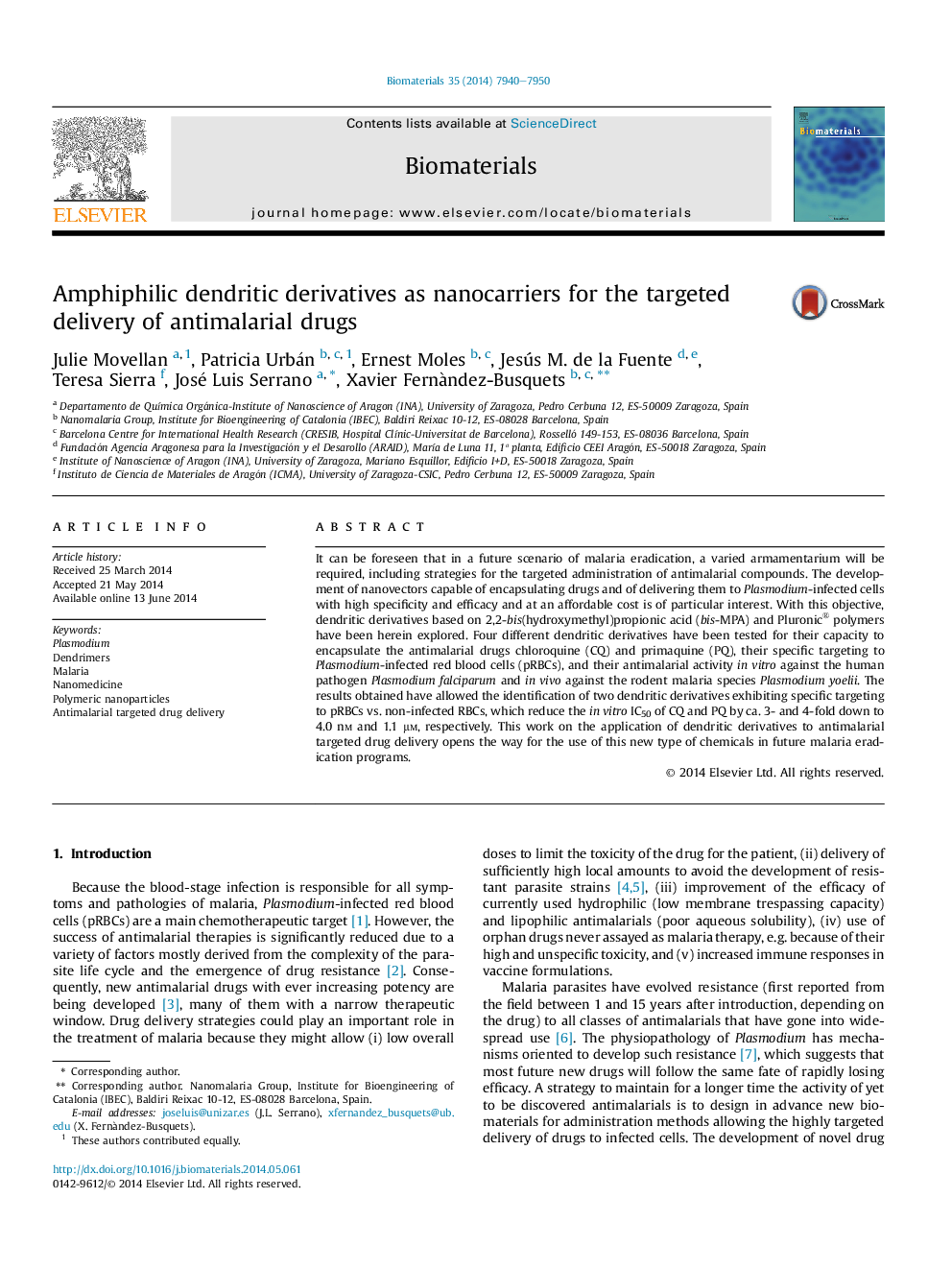| Article ID | Journal | Published Year | Pages | File Type |
|---|---|---|---|---|
| 5878 | Biomaterials | 2014 | 11 Pages |
It can be foreseen that in a future scenario of malaria eradication, a varied armamentarium will be required, including strategies for the targeted administration of antimalarial compounds. The development of nanovectors capable of encapsulating drugs and of delivering them to Plasmodium-infected cells with high specificity and efficacy and at an affordable cost is of particular interest. With this objective, dendritic derivatives based on 2,2-bis(hydroxymethyl)propionic acid (bis-MPA) and Pluronic® polymers have been herein explored. Four different dendritic derivatives have been tested for their capacity to encapsulate the antimalarial drugs chloroquine (CQ) and primaquine (PQ), their specific targeting to Plasmodium-infected red blood cells (pRBCs), and their antimalarial activity in vitro against the human pathogen Plasmodium falciparum and in vivo against the rodent malaria species Plasmodium yoelii. The results obtained have allowed the identification of two dendritic derivatives exhibiting specific targeting to pRBCs vs. non-infected RBCs, which reduce the in vitro IC50 of CQ and PQ by ca. 3- and 4-fold down to 4.0 nm and 1.1 μm, respectively. This work on the application of dendritic derivatives to antimalarial targeted drug delivery opens the way for the use of this new type of chemicals in future malaria eradication programs.
